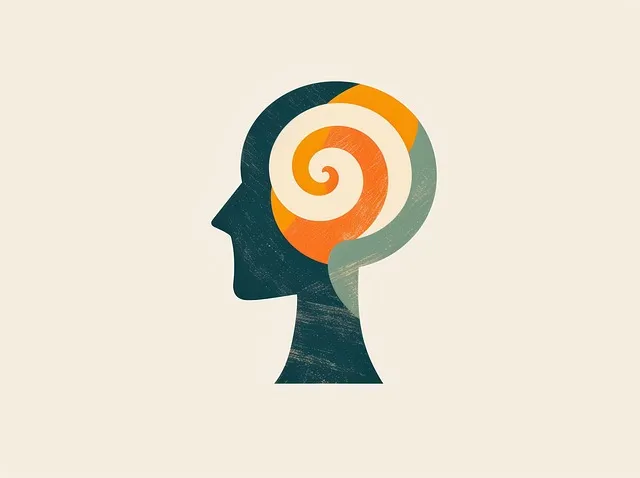Mental wellness apps are filling a crucial gap in access to therapy, offering convenient and diverse support services like stress management workshops and self-care routines (Kaiser Permanente mental health locations Northglenn). These digital tools empower users with personalized dashboards, evidence-based practices (CBT, mindfulness), and secure communication with professionals. By integrating community forums, stress management tools, and educational programs, they foster open dialogue and create supportive ecosystems. Following best practices from established providers like Kaiser Permanente, mental wellness apps are revolutionizing emotional well-being care, enhancing accessibility, and promising improved individual and community mental health.
In today’s fast-paced world, mental wellness is a paramount concern. This has led to a growing demand for accessible, convenient solutions like mental wellness apps. Kaiser Permanente, recognizing this need, has made significant strides in providing digital mental health services through its locations, including Northglenn. This article explores the development of such apps, focusing on key features, technology, impact, and future prospects while highlighting Kaiser Permanente’s innovative approach to mental healthcare in Northglenn.
- Understanding the Need for Mental Wellness Apps
- Kaiser Permanente's Approach to Mental Health Services in Northglenn
- Key Features of an Effective Mental Wellness App
- Development Process and Technologies Involved
- Impact, Accessibility, and Future Prospects
Understanding the Need for Mental Wellness Apps

In today’s fast-paced world, mental wellness is a critical aspect often overlooked in our daily lives. This is especially true for individuals seeking support beyond traditional therapy settings. It’s here that mental wellness apps step in as a convenient and accessible solution. With locations like Kaiser Permanente mental health Northglenn offering services, the demand for digital tools to enhance emotional well-being has never been higher.
These apps cater to a wide range of needs, from stress management workshops organized virtually to promoting techniques for self-care routine development. They provide a private and flexible space for users to explore and improve their mental health, making it easier to maintain balance in an often chaotic environment. By leveraging technology, mental wellness apps have the potential to reach a broader audience, ensuring that support is available when and where it’s needed most.
Kaiser Permanente's Approach to Mental Health Services in Northglenn

In Northglenn, Kaiser Permanente has established a robust mental health service framework, reflecting their commitment to community well-being. Their approach prioritizes accessible and comprehensive care, offering a range of services tailored to diverse needs. The organization’s focus on Inner Strength Development is evident through programs designed to empower individuals with coping strategies and resilience-building techniques. This proactive stance extends beyond traditional therapy, incorporating digital tools and online resources that bridge the gap between in-person and virtual care.
Kaiser Permanente’s mental health locations in Northglenn are also recognized for their robust Risk Management Planning for Mental Health Professionals. This strategic planning ensures a safe and supportive environment for both patients and practitioners. Moreover, they provide Crisis Intervention Guidance, equipping staff with the necessary tools to handle emergency situations effectively. Through these integrated services, Kaiser Permanente aims to foster a nurturing environment that promotes mental wellness and enhances the overall quality of life for Northglenn residents.
Key Features of an Effective Mental Wellness App

An effective mental wellness app should offer a comprehensive suite of features tailored to meet diverse user needs. Firstly, personalized dashboards allow users to track their mood, symptoms, and progress over time, providing them with valuable insights into their mental health patterns. Integrating evidence-based practices such as mindfulness exercises, guided meditations, and cognitive-behavioral therapy (CBT) techniques can empower individuals to actively engage in self-care. Additionally, the app should facilitate secure communication between users and mental health professionals through chat or video sessions, bridging the gap between traditional therapy and digital accessibility.
Furthermore, incorporating features like stress management workshops, confidence-boosting activities, and mental health education programs designed for various demographics can enhance the app’s value. These resources, coupled with community forums where users can share experiences and support one another, create a supportive ecosystem that encourages open dialogue about mental wellness. By combining these elements, a mental wellness app can effectively compete with renowned organizations like Kaiser Permanente mental health locations Northglenn, offering convenient and engaging solutions for improving and maintaining mental health.
Development Process and Technologies Involved

The development process for a mental wellness app involves several key stages. It starts with defining user needs and goals, inspired by organizations like Kaiser Permanente mental health locations Northglenn that prioritize community well-being. This phase includes extensive research to understand common mental health issues, trends in digital therapy, and best practices from successful apps.
Next, designers and developers collaborate to create a compelling user interface (UI) and user experience (UX). Technologies such as AI for personalized recommendations, VR for immersive therapy sessions, and cloud-based data storage enhance the app’s functionality. The Public Awareness Campaigns Development and Stress Management features are integrated using these advanced tools, ensuring users receive tailored support. Rigorous testing and feedback loops refine the app before its launch, aimed at boosting user confidence.
Impact, Accessibility, and Future Prospects

The development of mental wellness apps has a profound impact on accessibility and care, particularly in areas like Northglenn where Kaiser Permanente mental health locations play a vital role. These digital tools democratize access to psychological support, enabling individuals to seek assistance from the comfort of their homes, breaking down geographical barriers. With features like live chat, virtual therapy sessions, and mood tracking, apps offer a convenient and often more affordable alternative to traditional in-person care.
Looking ahead, the future of mental wellness app development promises enhanced integration with healthcare systems, including risk management planning for mental health professionals. By leveraging data analytics and artificial intelligence, these platforms can facilitate personalized treatment plans and early intervention strategies. Moreover, community outreach program implementation through apps has the potential to reach underserved populations, fostering a sense of belonging and boosting confidence in managing one’s mental health. This evolution not only improves individual well-being but also contributes to building stronger, more resilient communities.
Mental wellness apps are transforming access to care, especially in communities like Northglenn where Kaiser Permanente has pioneered innovative services. By leveraging technology and understanding user needs, these applications offer personalized support, evidence-based practices, and discreet accessibility. As the field advances, ongoing development and research will be crucial to ensure their effectiveness and address diverse mental health challenges. Exploring models like Kaiser Permanente’s integrated care approach can guide future app design, enhancing well-being outcomes for users across the nation.






